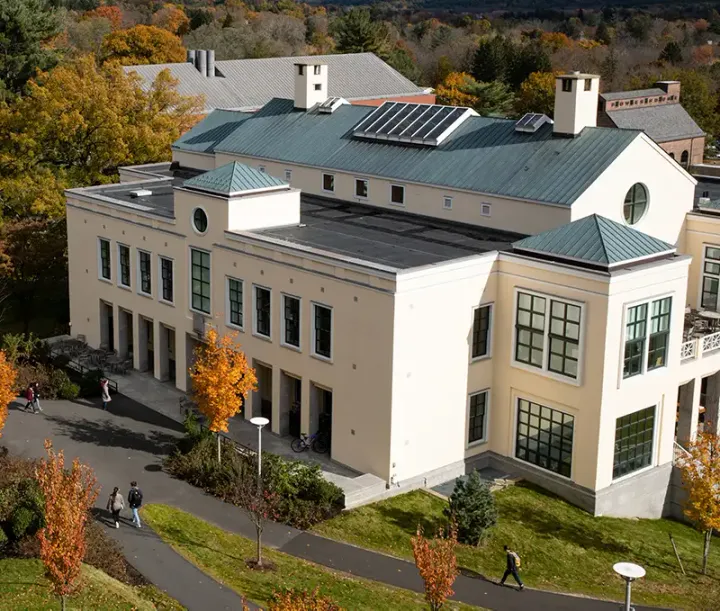Provost Discusses the Effects of AI on the College
In a virtual conversation open to students, Provost and Dean of the Faculty Martha Umphrey discussed the challenges artificial intelligence poses to the college while also highlighting the innovative pedagogical methods the current moment could produce.

Provost and Dean of the Faculty Martha M. Umphrey joined Associate Dean of the Faculty Leah Schmalzbauer last Friday for a live virtual discussion on the current role of AI in the classroom. The conversation centered on the challenges to higher education brought on by AI and the college's strategic efforts to preserve the interpersonal element of teaching.
In what they described as a uniquely challenging time for higher education, Umphrey and Schmalbauer emphasized the college’s commitment to “the intensity of human relationality,” which they argued could not be replaced by artificial intelligence.
A major concern, they noted, is the way that generative AI software like ChatGPT is built into the infrastructure of student learning, leading to inevitable ethical problems. In “everything from Google Docs to Grammarly, these large language models are being offered to students for free,” Umphrey said.
As a member of a task force on AI and pedagogy for the college, Umphrey said that professors should be understanding of students’ tendency to gravitate toward AI. “Trying to figure out how to talk to students about those issues is really important, really critical,” she said.
One method of combating the use of AI, Umphrey said, is the college’s First Year Seminar program, where faculty can discuss with students the importance of doing work to “get where we want to be as thinkers, and how some of these technologies and programs can get in the way of the work that’s at the heart of a liberal arts education.”
Umphrey also spoke on the long-term dangers of relying on AI to produce work, particularly in the humanities. Referencing an article from The New Yorker by D. Graham Burnett, “Will the Humanities Survive Artificial Intelligence?”, Umphrey noted the author’s idea that there will be neither a need to write nor read books in five years because of the way that human knowledge is being absorbed and produced by large language models. While she noted that she did not agree with everything in the article, Umphrey said that “we can’t really resist” artificial intelligence, and must focus on Amherst’s ability to preserve the relationality of teaching in smaller classrooms.
In the process of grappling with such technological development, Umphrey shared that some “older-fashioned ways of teaching,” such as in-class writing assignments, are being brought back to the forefront of the classroom.
Umphrey discussed the impact of Covid on K-12 education, explaining that it has negatively affected how well-prepared first-year students are for higher education. However, considering the challenges of teaching during the Covid pandemic, she shared, “I think about the ways in which we can generate innovation in the face of real challenge. We’ve done it before, and I think we’re really doing it now.”
In this sense, Umphrey said the current moment is “less of an existential crisis than it is a really complex and fascinating reimagining of what education can be. That’s really exciting to me.”





Comments ()